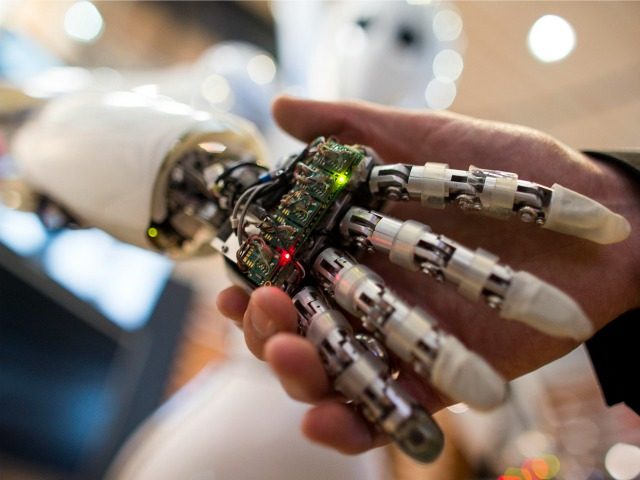Robotics manufacturers and their affiliates are campaigning for a limited “electronic personality” to be granted to their high-tech automatons, but experts around the world are pushing back.
Milan-based corporate lawyer Stefania Lucchetti has asked: “in a scenario where an algorithm can take autonomous decision, then who should be responsible for these decisions?” This question is a core concern in a world forced to rapidly come to terms with the development of our cybernetic counterparts, and one Lucchetti believes is, for now, easily answered. Offering robots a limited legal “electronic personality” would put them on roughly the same terrain as corporations, but would not dictate that they are “self-conscious” or could “marry another robot.”
MEP and vice chair of the European Parliament’s legal affairs committee, Mady Delvaux, has begun to agree. While she is not strictly convinced that granting robots personalities is the right decision, she is “more and more convinced” by the information she has received from proponents of the idea. Still, she says, “maybe at the end of the day, we’ll come to the conclusion that it is not a good idea.”
University of Sheffield emeritus professor of artificial intelligence and robotics Noel Sharkey certainly believes that it is not. “This [European Parliament position] was what I’d call a slimy way of manufacturers getting out of their responsibility,” he said. His thoughts come alongside an open letter he has co-signed along with 155 other experts from a total of 14 European countries. The letter asserts that offering robots this sort of protection would be “inappropriate” from both a “legal and ethical perspective.”
“By adopting legal personhood,” explains Université d’Artois law professor Nathalie Navejans, “we are going to erase the responsibility of manufacturers.” Navejans is the primary proponent of the opposition to granting robotics manufacturers an easy method of deflecting blame when something goes wrong.
With such explosive growth in robotics — a market expected to reach about $15 billion by 2023 — tech companies are already looking for ways to separate themselves from the actions of increasingly complex and independent machines. Recently, robots like Sophia have been used to highlight that advancement. Sophia has been granted Saudi Arabian citizenship, a title by the U.N., and even opened this year’s Munich Security Conference. “But when they start bringing it to the U.N. and giving nations the wrong idea of what robotics can do and where AI is at the moment,” Sharkey warns, “it’s very, very dangerous.”

COMMENTS
Please let us know if you're having issues with commenting.